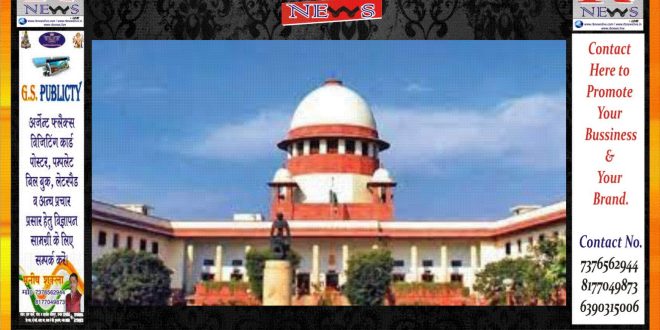In an important decision given on Thursday, the Supreme Court said that criticizing the abrogation of Article 370 from Jammu and Kashmir and congratulating Pakistan on Independence Day cannot be considered a crime. The criminal case against a professor who posted WhatsApp statuses related to this issue has been quashed by the Supreme Court. This decision given by the Supreme Court is being discussed on a large scale. Let us know what this whole matter is.
First know what is the whole case?
This issue that reached the court was about Professor Javed Ahmed Hazam. “5th August – Black Day Jammu and Kashmir. 14th August – Independence Day Pakistan,” the professor wrote in a WhatsApp group of teachers and parents. Message was posted. Maharashtra Police had registered an FIR against Professor Javed in this case under Section 153A. Bombay High Court had refused to cancel the FIR in this case. In this case, concerns were raised that such messages could promote disharmony and ill will between different groups.
Supreme Court canceled the case
According to Live Law, the Supreme Court has canceled the case registered against Professor Javed Ahmed Hazam under Section 153A (promoting communal disharmony). While giving the verdict, the court said that every citizen of India has the right to criticize the action of abrogating Article 370 and changing the status of Jammu and Kashmir. Describing the day the eviction took place as a ‘black day’ is an expression of protest and pain. If every criticism or opposition to the actions of the State would be considered an offense under Section 153-A, democracy, which is an essential feature of the Constitution of India, would not survive.
right to freedom of expression
The Supreme Court has taken a different stance, recognizing the primacy of the right to freedom of speech and expression guaranteed by Article 19(1)(a) of the Constitution. The court emphasized that WhatsApp Status did not target any specific group on the basis of religion, race or other grounds while expressing dissent. The court said this is a ‘simple protest’ by the professor against the central government’s decision to abrogate Article 370 of the Constitution and related measures.
Right to wish other countries
With regard to a second WhatsApp message celebrating Pakistan’s Independence Day, the Supreme Court reaffirmed its view that the act would not attract penal consequences under Section 153A of the Indian Penal Code. The Court emphasized that citizens have the right to wish other countries, such as celebrating Pakistan’s Independence Day. This should not be seen as promoting any animosity.
 RB News World Latest News
RB News World Latest News






